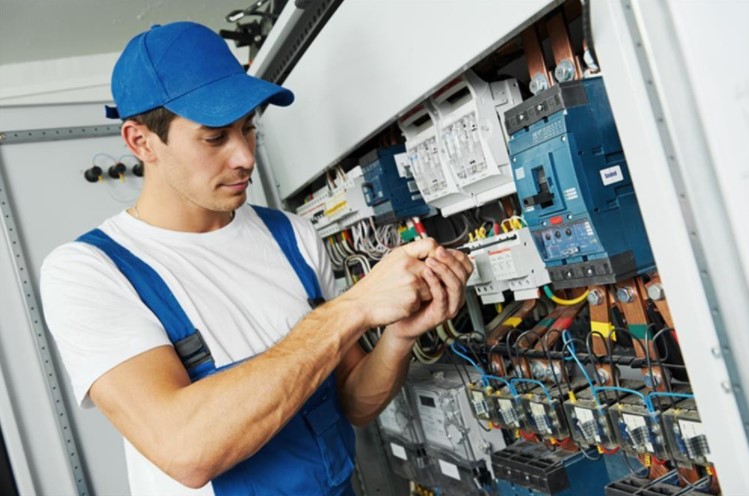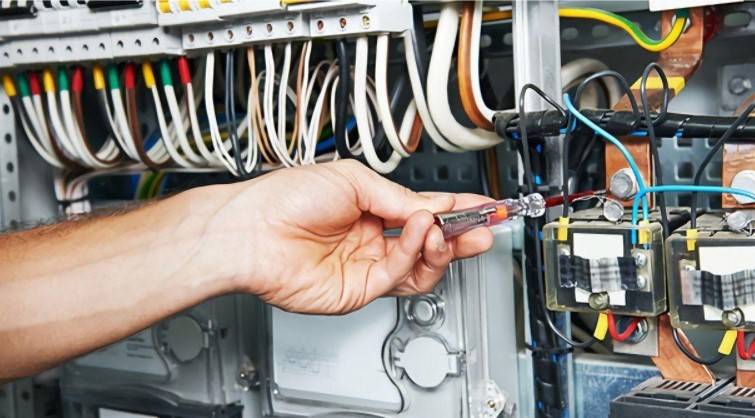
We can all agree that living without electricity is not possible anymore. Therefore, you should find a quality electrician to help you deal with regular maintenance, inspections, and potential problems.
Remember that we can differentiate between commercial and residential electricians. Each option comes with complexity, but we can also consider numerous similarities.
You should check out this site: wrightstoneelectric.com to learn more about finding a perfect professional for your requirements.
You probably understand commercial contracts must handle large and significant projects, which means they need to understand other things as well. That is why most commercial contractors work on home projects too.
Since the world of electricity is comprehensive, everything depends on specialization to differentiate numerous types.
It is vital to remember that we can state more than twenty professionals depending on training, specialization, and levels of experience. However, in a further article, we wish to present you the most common options you can find on the market, such as:
- Industrial
- Commercial
- Residential
- Automotive
- Low voltage
Another vital consideration is that not each electrician will become a contractor. However, most commercial and residential electricians will.
Therefore, they can handle individual projects or become a part of a company. It is essential to understand the differences between industrial and residential professionals.
Residential vs. Commercial Electrical Contractors

-
Offered Services
Generally, residential contractors are responsible for proper finishing, compliance, and safety of household installations. Therefore, we can call them domestic professionals.
Of course, you should know other responsibilities you can expect from a home professional, including:
- Repair and inspection of potential issues within your household
- Analyzing and interpreting blueprints
- Rewiring and inspecting the entire systems
- Servicing and maintaining fixtures and appliances
On the other hand, industrial contractors must handle more complex and significant projects. We are dealing with wiring machines, systems, and control panels by following relevant blueprints.
You should click here to learn more about this particular profession.
At the same time, they work by creating systems for public buildings, business locations, and factories. At the same time, they can handle relevant permits required by cities and states.
-
Supplies and Equipment
Another vital difference between commercial and residential power supply lines is the amount you wish to use. Therefore, residential deal with single-phase systems that go up to 240V depending on numerous factors.
Besides, industrial electricity comes in three phases. It can carry up to 480V because industrial applications require more potent energy requirements than residential options.
Since the difference in power is transparent, they should use specific supplies and equipment for each option. Therefore, residential systems require less insulation and sheathing combined with thin gauge cabling.
Everything depends on the equipment you wish to use, but 240V is enough for most homes. At the same time, professionals must use specific supplies, breakers, and wiring created for residential purposes.
Commercial systems require greater sheathing and insulation combined with cables because you should create a more demanding application. Therefore, you will need higher current flow and voltage, which you should remember beforehand.
At the same time, safety and load demands are essential. Still, they are simpler to access in case something goes wrong.
Since they require more maintenance and regular inspection, professionals should install everything in accessible areas for simple troubleshooting.
Maintenance frequency should be more often because prevention is less expensive than hefty repairs.
-
Technical Skills
Professionals should pass basic training and education. Besides, they must become apprentices in trade school, where they will get undergraduate degrees, which is an effective way for you to become an electrician.
However, if you wish to become an expert on commercial systems, you should continue your education. You need to have a higher experience and skill level because of the safety, complexity, and reliability.
You probably understand that three-phase systems are more challenging to install, which means you need more knowledge and experience to do it. We are talking about phase diagrams, voltage balancing, control systems, and many more.
Therefore, commercial contractors should become Master Electricians and have more than four thousand hours of direct experience.
-
Project Size
You probably understand by now that commercial projects will always be more significant and complex than residential. We are talking about business complexes, malls, office buildings, which means these projects require more skills, time, and employees.
As a result, commercial professionals earn more than their residential counterparts, which is an important consideration to remember.
Still, commercial contractors can handle household projects, especially projects such as massive estates, apartment buildings, and many more.
A commercial electrician can handle any project as a residential. However, residential cannot deal with commercial applications and projects due to a lack of experience and expertise.
Therefore, before you decide to find a proper professional for your particular requirements, you should conduct comprehensive research to reach the best ones on the market.
It is as simple as that.

